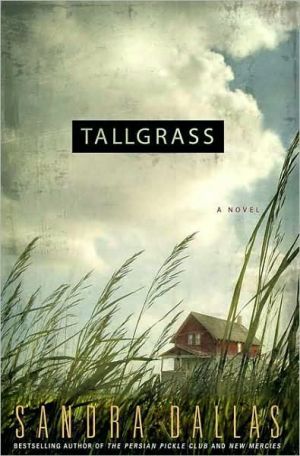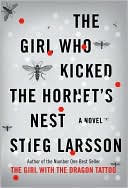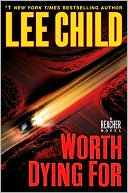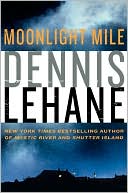Tallgrass
During Word War II, a family fnds life turned upside down when the government opens a Japanese internment camp in their small Colorado town. After a young girl is murdered, all eyes (and suspicions) turn to the newcomers, the interlopers, the strangers.\ This is her town as Rennie Stroud has never seen it before. She has just turned thirteen and, until this time, life has pretty much been what her father told her it should be: predictable and fair. But now the winds of change are coming and,...
Search in google:
A compelling new book from Sandra Dallas that "will undoubtedly draw apt comparisons with such novels as To Kill A Mockingbird and Snow Falling on Cedars"**William Kent Krueger, author of the prize-winning Corcoran O'Connor novelsPublishers WeeklyAn ugly murder is central to this compelling historical, but the focus is on one appealing family, the Strouds, in the backwater town of Ellis, Colo. Soon after Pearl Harbor, the U.S. government rounded up all the Japanese residents of the West Coast and shipped them off to "internment camps" for the duration of the war. One of the camps is Tallgrass, based on an actual Colorado camp, as Dallas (The Chili Queen) explains in her acknowledgments. The major discomforts and petty indignities these (mostly) American citizens had to endure are viewed through the clear eyes of a young girl who lives on a nearby farm, Rennie Stroud. Rennie's obvious love of family slowly extends itself to the Japanese house and field helpers the Strouds receive permission to hire. The final surprise is the who and why of the murder itself. Dallas's terrific characters, unerring ear for regional dialects and ability to evoke the sights and sounds of the 1940s make this a special treat. Author tour. (Apr.)Copyright 2007 Reed Business Information
The summer I was thirteen, the Japanese came to Ellis. Not Ellis, exactly, but to the old Tallgrass Ranch, which the government had turned into a relocation camp. Tallgrass was a mile and a half from Ellis, less than a mile past our farm, and it was one of the camps the government was building then to house the Japanese. In early 1942, the Japanese on the West Coast had been rounded up and incarcerated in places such as the Santa Anita race-track. Those destined for Colorado waited there until streets had been bladed into the yucca and sagebrush at Tallgrass, guard towers and barracks thrown up, and the camp fenced off with bob-wire. Then they were put on a train and sent a thousand miles to Ellis. Irem ember the crowd of townspeople at the depot the day the first Japanese arrived. The arrival date was supposed to be a secret, but we knew the evacuees were coming, because the government had alerted the stationmaster and hired bus drivers, and guards with guns patrolled the station platform. I’d sneaked away from my parents and gone to the depot, too, because I’d never seen any Japanese. I expected them to look like the cartoons of Hirohito in the newspaper, with slanted eyes and buckteeth and skin like rancid butter. All these years later, Irecall Iwa s disappointed that they didn’t appear to be a “yellow peril” at all. They were so ordinary. That is what I remember most about them.\ The Japanese gripped the handrails as they got off the train because the steps were steep and their legs were short, and they frowned and blinked into the white-hot sun. They had made the trip with the shades in the coaches pulled down, and the glare of the prairie hurt their eyes. Most of the evacuees on that first train were men, dressed in suits, rumpled now after the long ride, ties that were loosened, and straw hats. Some had on felt hats, although it was August.\ The few women wore tailored skirts and blouses and summer dresses with shoulder pads, coats over their arms. They pulled scarves from their pocketbooks and tied them around their heads to keep the hot wind from blowing dust into their hair. Some of the women had on wedgies or open-toed spectator pumps and silk or rayon stockings. Each evacuee carried a single suitcase, because that was all they had been allowed to bring with them.\ The adults stood quietly in little groups, whispering, waiting to be told what to do. I expected one of the guards to take charge, to steer the people to the school buses lined up along the platform or tell them to go inside where it was cooler. But no one did, so they waited, confused. I wanted to point the evacuees to the drinking fountain and the bathrooms in the depot. They must have needed them. But I didn’t dare speak up.\ Some of the men took out packages of Camels and Chesterfields and Lucky Strikes and lighted cigarettes. None of them chewed tobacco, and none of the women smoked. Several children, cooped up for days, seemed glad to be out in the open, and they squatted down to examine the tracks or ran around, jerky as Mexican jumping beans. A little boy smiled at me, but I turned away, embarrassed to make a connection with him. I wondered if the kids were supposed to be our enemies, too. Then the mothers called to them, and the children joined their parents, fidgeting as they looked at us shyly. Only the children took notice of the group of townspeople on the platform staring at them, many hostile, all of us curious.\ A man who stepped down from the last car removed his hat, an expensive one that did not have sweat stains like the hats the farmers wore. He smoothed his hair, which appeared to have been slicked back with Vitalis or some other hair oil, because every strand was in place, despite the wind. Holding the hat in his hand, he rubbed his wrist across his forehead. Shading his eyes, he squinted at the prairie grass that glinted like brass in the sun and asked the man beside him, “Where are we?” The second man shrugged, and I suddenly felt sorry for the Japanese. What if the government had taken over our farm and sent us far away on the train, and nobody would tell us our destination? But we weren’t Japanese. We were Americans.\ “Ellis. You’re at Ellis, Colorado,” awoman nearme called out.\ Her husband shushed her. “Don’t tell those people where they’re at. Don’t you know nothing?” He rubbed his big face with a hand that the sun had turned as brown as a walnut. The man had shaved before coming to town. You could tell by the tiny clots of dried blood where he had nicked himself and the clumps of whiskers the razor had missed. They stuck up in the folds of his skin like willow shoots in a gully.\ The Japanese man looked into the crowd, searching for the woman who’d spoken. She kept still, however, so he put his hat back on, tightened his tie, and buttoned his suit jacket as he leaned down to whisper something to a girl about my age. I admired her saddle shoes, thinking she must be rich, because saddle shoes cost more than the plain brown oxfords Mom bought me. I wondered how long her shoes would stay white in the dirt of Tallgrass. It wasn’t likely that she’d put shoe polish into her small suitcase. The girl shook back her hair, which was long and black and glossy. I had never seen such hair. It was as if coal had been spun into long threads. She unfolded a scarf splashed with pink flowers and put it around her head, tying it at the back of her neck, under her hair.\ “Silk. Real silk,” a woman near me muttered, but I could not tell if she was jealous or just stating a fact.\ A man beside her observed, “I thought they’d have buckteeth. They don’t have buckteeth.”\ “ You got buckteeth enough for all of ’em,” called one of the boys at the back of the crowd. The man turned around and searched the faces, but he couldn’t identify the kid who’d spoken.\ I could. He was Beaner Jack. I knew because Danny Spano stopped chugging his Grapette long enough to slap Beaner on the back and say, “Good one.” Beaner and Danny were always together, except for the time when Danny was in the army. He’d been in an accident at Camp Carson, near Colorado Springs, and hurt his foot, and the army didn’t want him anymore, so he’d been mustered out. Now he was back in Ellis. Both Danny and Beaner were eighteen, the age of my sister, Marthalice, who had gone to Denver to work in an arms plant after she graduated in May. I didn’t know whether she’d done it because she was patriotic or because she was blue after her favorite boyfriend, Hank Gantz, quit school to join the navy. My brother, Buddy, who was twenty-one, had left college to enlist in the army the week after Pearl Harbor.
\ Publishers WeeklyAn ugly murder is central to this compelling historical, but the focus is on one appealing family, the Strouds, in the backwater town of Ellis, Colo. Soon after Pearl Harbor, the U.S. government rounded up all the Japanese residents of the West Coast and shipped them off to "internment camps" for the duration of the war. One of the camps is Tallgrass, based on an actual Colorado camp, as Dallas (The Chili Queen) explains in her acknowledgments. The major discomforts and petty indignities these (mostly) American citizens had to endure are viewed through the clear eyes of a young girl who lives on a nearby farm, Rennie Stroud. Rennie's obvious love of family slowly extends itself to the Japanese house and field helpers the Strouds receive permission to hire. The final surprise is the who and why of the murder itself. Dallas's terrific characters, unerring ear for regional dialects and ability to evoke the sights and sounds of the 1940s make this a special treat. Author tour. (Apr.)\ Copyright 2007 Reed Business Information\ \ \ \ \ Library JournalRennie Stroud looks back to 1942, when she was 13, to tell a powerful coming-of-age story. That year, the U.S. government opened a Japanese internment camp outside Ellis, CO, less than a mile from where Rennie and her family farmed sugar beets. Rennie observes the prejudice of some of the townspeople as well as her parents' strong moral code and their entanglement in the emotions of the time. Her father, Loyal, not only shows open support for the Japanese, whom he views as Americans, but offers to hire them to work on the farm. When a young girl is murdered, suspicion naturally turns to the camp, and the town is divided by fear. Dallas's strong, provocative novel is a moving examination of prejudice and fear that addresses issues of community discord, abuse, and rape. Her phrasing and language bring the 1940s to life, and she has created characters that will linger with the reader. As in her previous work, The Persian Pickle Club, Dallas emphasizes the need for women to form strong networks in order to survive emotionally. Highly recommended for book clubs and public libraries.\ —Lesa M. Holstine\ \ \ School Library JournalAdult/High School -Dallas has made a major contribution to a growing body of literature about the internment of Japanese Americans during World War II. Based on the one camp in Colorado (named Amache, and renamed Tallgrass by the author), the story focuses on the impact it had on the local farmers and townspeople. It is told from the viewpoint of Rennie Stroud, 13, and poignantly portrays the emotional turmoil of both the internees and local residents. Suspicion, fear, anger, hatred, love, tenderness, pride, regret: Rennie adapts and readapts to all of these as her predictable life vanishes behind the reality of war, murder, and injustice. After a young local girl is killed, most of the town looks in one direction for the murderer. Rennie, blessed with wise and just parents, manages to rise above the prevailing rush to judgment. Part mystery, part historical fiction, part coming-of-age story, Tallgrass has all the elements of a tale well told: complex characters, intriguing plot, atmospheric detail, pathos, humor, and memorable turns of phrase. But most of all, the book offers a fresh look at a theme that can never be ignored: the interplay of good and evil within society and within people.-Robert Saunderson, Berkeley Public Library, CA\ Copyright 2006 Reed Business Information.\ \ \ \ \ Kirkus ReviewsA Colorado beet farmer and his family are sorely tried by events of WWII. When the U.S. government establishes a Japanese-American relocation camp in Ellis, Colo., in 1942, Loyal Stroud takes a view apart from most other townsfolk. Having "the enemy in their midst" riles the locals, but Loyal believes the whole thing is plain wrong. Why not round up all the German-Americans, too, while they're at it? Aside from civic issues, Loyal has to figure out how to harvest his beets, what with Buddy, his son, enlisted, along with his farm hands. Against prevailing sentiment, Loyal hires three young men from the camp. And although Rennie, 14, the last child home, worries about her father's decision, she and her mother, Mary, come to love the boys, who are from California farm country. And when Mary's heart ailment finally gets bad enough for her to take the rest cure the doctor advised, the Strouds hire Daisy, the sister of one of the boys. Daisy works hard and speaks in a Hollywood tabloid lingo that charms the whole family. Their domestic harmony is rocked by news that Buddy is missing in action and-shockingly-that Rennie's school friend Sally is found raped and murdered. Everyone except the Strouds and the sheriff believes "the Japs" did it, and the tension in town builds to the point of near-anarchy, when the local bigots get liquored up and try to take the law into their own hands. Throughout all this drama, as in most of Dallas's work (Alice's Tulips, 2000, etc.), a community of quilters, known here as the Jolly Stitchers, come and go, bringing cakes, covered casseroles and gossip to the sick and grieving. The parallels of a country at war then and now give this story a layer of poignancy, butotherwise, as is obvious from the start, the good guys win and the bad guys lose, and Buddy comes marching home. A well-spun but familiar tale.\ \ \ \ \ From the Publisher\ Advance Praise for Tallgrass:\ "A compelling and genuinely moving novel."-Jennifer Chiaverini, author of Circle of Quilters\ \ "Sandra Dallas is a true American Voice."--Gail Tsukiyama, author of Dreaming Water\ \ "Tallgrass is a must read for every American."--Former Congresswoman Pat Schroeder, President and CEO of the Association of American Publishers (AAP)\ "A profoundly moving story."--Bill Hosokawa, author of Nisei\ "The sweep of the Great Plains, the tensions of World War II that rift a small community and the remarkable cast of characters are all heartbreakingly real."-Margaret Coel, author of The Drowning Man\ \ \








